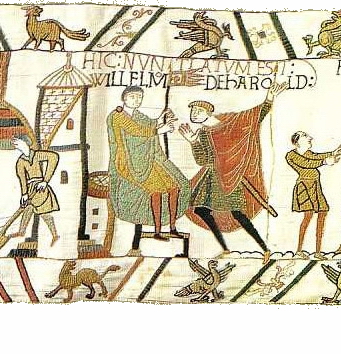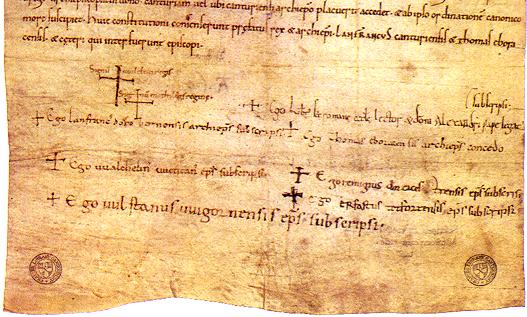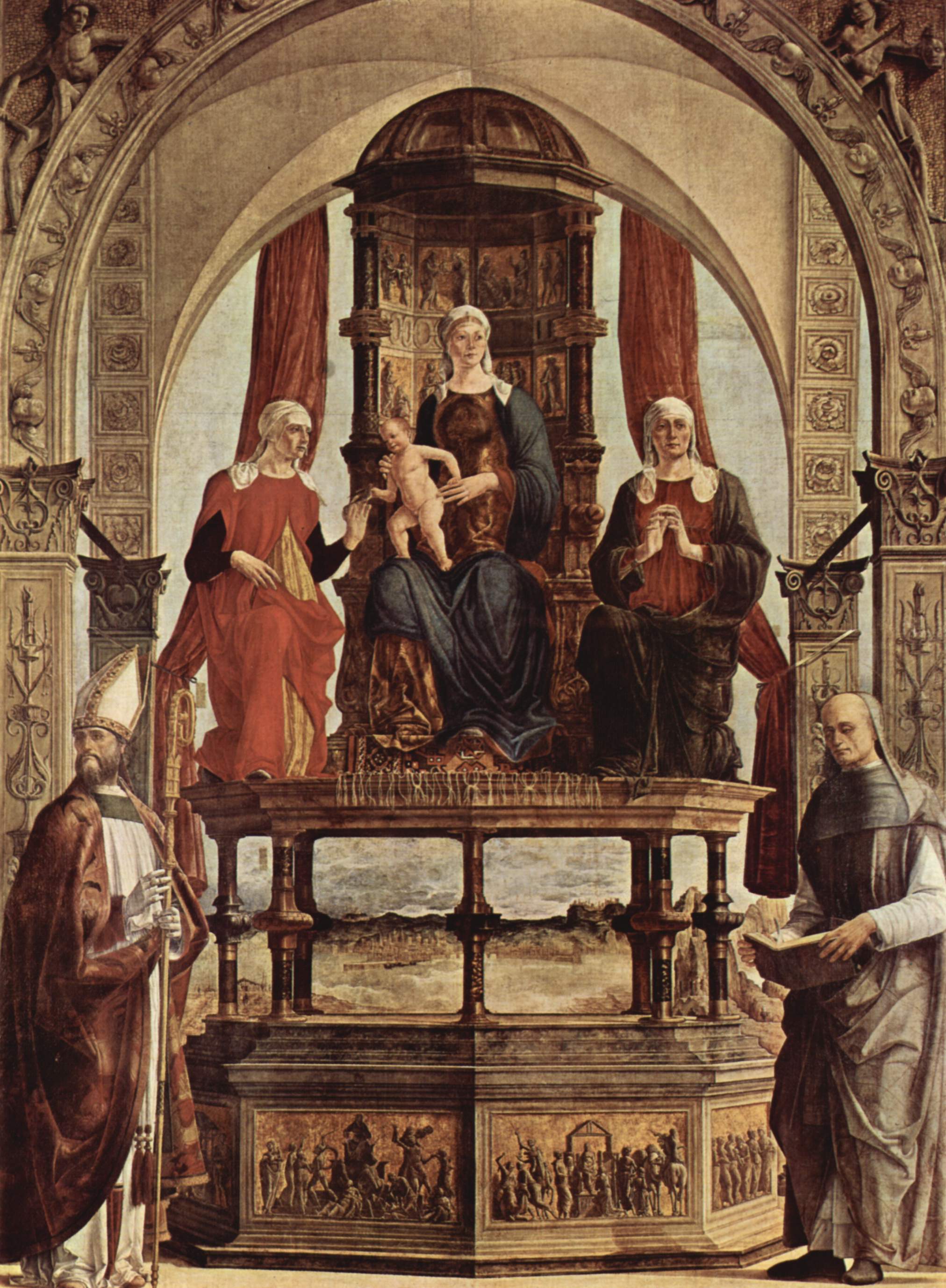|
Pope Alexander II
Pope Alexander II (1010/1015 – 21 April 1073), born Anselm of Baggio, was the head of the Roman Catholic Church and ruler of the Papal States from 1061 to his death in 1073. Born in Milan, Anselm was deeply involved in the Pataria reform movement. Elected according to the terms of his predecessor's bull, '' In nomine Domini'', Anselm's was the first election by the cardinals without the participation of the people and minor clergy of Rome. He also authorized the Norman Conquest of England in 1066. Early life and work Anselm was born in the parish of Cesano Boscone in the town of Corsico some from Milan of a noble family. The family took its name from Baggio, a suburb of Milan, where the family held the office of "captain". According to the ''Liber pontificalis'', his father's name was Anselmus or Ardericus. Contemporary sources do not provide any information on where Anselm might have obtained his education. It was traditionally believed that Anselm de Baggio studi ... [...More Info...] [...Related Items...] OR: [Wikipedia] [Google] [Baidu] |
Pope
The pope ( la, papa, from el, πάππας, translit=pappas, 'father'), also known as supreme pontiff ( or ), Roman pontiff () or sovereign pontiff, is the bishop of Rome (or historically the patriarch of Rome), head of the worldwide Catholic Church, and has also served as the head of state or sovereign of the Papal States and later the Vatican City State since the eighth century. From a Catholic viewpoint, the primacy of the bishop of Rome is largely derived from his role as the apostolic successor to Saint Peter, to whom primacy was conferred by Jesus, who gave Peter the Keys of Heaven and the powers of "binding and loosing", naming him as the "rock" upon which the Church would be built. The current pope is Francis, who was elected on 13 March 2013. While his office is called the papacy, the jurisdiction of the episcopal see is called the Holy See. It is the Holy See that is the sovereign entity by international law headquartered in the distinctively independent Vatic ... [...More Info...] [...Related Items...] OR: [Wikipedia] [Google] [Baidu] |
Lanfranc
Lanfranc, OSB (1005 1010 – 24 May 1089) was a celebrated Italian jurist who renounced his career to become a Benedictine monk at Bec in Normandy. He served successively as prior of Bec Abbey and abbot of St Stephen in Normandy and then as Archbishop of Canterbury in England, following its Conquest by William the Conqueror. He is also variously known as ( it, Lanfranco di Pavia), (french: Lanfranc du Bec), and ( la, Lanfrancus Cantuariensis). Early life Lanfranc was born in the early years of the 11th century at Pavia, where later tradition held that his father, Hanbald, held a rank broadly equivalent to magistrate. He was orphaned at an early age. Lanfranc was trained in the liberal arts, at that time a field in which northern Italy was famous (there is little or no evidence to support the myth that his education included much in the way of Civil Law, and none that links him with Irnerius of Bologna as a pioneer in the renaissance of its study). For unknown reasons ... [...More Info...] [...Related Items...] OR: [Wikipedia] [Google] [Baidu] |
Holy Roman Emperor
The Holy Roman Emperor, originally and officially the Emperor of the Romans ( la, Imperator Romanorum, german: Kaiser der Römer) during the Middle Ages, and also known as the Roman-German Emperor since the early modern period ( la, Imperator Germanorum, german: Römisch-deutscher Kaiser, lit, Roman-German emperor), was the ruler and head of state of the Holy Roman Empire. The title was held in conjunction with the title of king of Italy (''Rex Italiae'') from the 8th to the 16th century, and, almost without interruption, with the title of king of Germany (''Rex Teutonicorum'', lit. "King of the Teutons") throughout the 12th to 18th centuries. The Holy Roman Emperor title provided the highest prestige among medieval Roman Catholic monarchs, because the empire was considered by the Roman Catholic Church to be the only successor of the Roman Empire during the Middle Ages and the early modern period. Thus, in theory and diplomacy, the emperors were considered '' primus inter ... [...More Info...] [...Related Items...] OR: [Wikipedia] [Google] [Baidu] |
Richard I Of Capua
Richard Drengot (died 1078) was the count of Aversa (1049–1078), prince of Capua (1058–1078, as Richard I) and duke of Gaeta (1064–1078). Early career in Italy Richard, who came from near Dieppe in the Pays de Caux in eastern Normandy, was the son of Asclettin I, count of Acerenza, younger brother of Asclettin II, count of Aversa, and nephew of Rainulf Drengot. Richard arrived in Southern Italy shortly after Rainulf's death in 1045, accompanied by forty Norman knights. When he first arrived in Aversa, according to Amatus of Montecassino Richard was well received by the people who followed him as if he were a count.''The History of the Normans by Amatus of Montecassino'', trans. Prescott N. Dunbar, ed. Graham A Loud (Woodbridge: Boydell Press, 2004), p. 84 He was described as strikingly handsome, a young man of open countenance who by design rode a horse so small his feet nearly touched the ground.The eleventh-century warhorse was usually smaller, usually no taller than 12 ha ... [...More Info...] [...Related Items...] OR: [Wikipedia] [Google] [Baidu] |
Cardinal (Catholic Church)
A cardinal ( la, Sanctae Romanae Ecclesiae cardinalis, literally 'cardinal of the Holy Roman Church') is a senior member of the clergy of the Catholic Church. Cardinals are created by the ruling pope and typically hold the title for life. Collectively, they constitute the College of Cardinals. Their most solemn responsibility is to elect a new pope in a conclave, almost always from among themselves (with a few historical exceptions), when the Holy See is vacant. During the period between a pope's death or resignation and the election of his successor, the day-to-day governance of the Holy See is in the hands of the College of Cardinals. The right to participate in a conclave is limited to cardinals who have not reached the age of 80 years by the day the vacancy occurs. In addition, cardinals collectively participate in papal consistories (which generally take place annually), in which matters of importance to the Church are considered and new cardinals may be created. Cardina ... [...More Info...] [...Related Items...] OR: [Wikipedia] [Google] [Baidu] |
Peter Damian
Peter Damian ( la, Petrus Damianus; it, Pietro or '; – 21 or 22 February 1072 or 1073) was a reforming Benedictine monk and cardinal in the circle of Pope Leo IX. Dante placed him in one of the highest circles of '' Paradiso'' as a great predecessor of Francis of Assisi and he was declared a Doctor of the Church on 27 September 1828. His feast day is 21 February. Early life Peter was born in Ravenna around 1007, the youngest of a large but poor noble family. Orphaned early, he was at first adopted by an elder brother, who ill-treated and under-fed him while employing him as a swineherd. After some years, another brother, Damianus, who was archpriest at Ravenna, had pity on him and took him away to be educated. Adding his brother's name to his own, Peter made such rapid progress in his studies of theology and canon law, first at Ravenna, then at Faenza, and finally at the University of Parma, that, around the age of 25, he was already a famous teacher at Parma a ... [...More Info...] [...Related Items...] OR: [Wikipedia] [Google] [Baidu] |
Holy See
The Holy See ( lat, Sancta Sedes, ; it, Santa Sede ), also called the See of Rome, Petrine See or Apostolic See, is the jurisdiction of the Pope in his role as the bishop of Rome. It includes the apostolic episcopal see of the Diocese of Rome, which has ecclesiastical jurisdiction over the Catholic Church and the sovereign city-state known as the Vatican City. According to Catholic tradition it was founded in the first century by Saints Peter and Paul and, by virtue of Petrine and papal primacy, is the focal point of full communion for Catholic Christians around the world. As a sovereign entity, the Holy See is headquartered in, operates from, and exercises "exclusive dominion" over the independent Vatican City State enclave in Rome, of which the pope is sovereign. The Holy See is administered by the Roman Curia (Latin for "Roman Court"), which is the central government of the Catholic Church. The Roman Curia includes various dicasteries, comparable to ministries and ex ... [...More Info...] [...Related Items...] OR: [Wikipedia] [Google] [Baidu] |
Benefice
A benefice () or living is a reward received in exchange for services rendered and as a retainer for future services. The Roman Empire used the Latin term as a benefit to an individual from the Empire for services rendered. Its use was adopted by the Western Church in the Carolingian, Carolingian Era as a benefit bestowed by the crown or church officials. A benefice specifically from a church is called a precaria (pl. ''precariae)'', such as a stipend, and one from a monarch or nobleman is usually called a fief. A benefice is distinct from an allodial title, allod, in that an allod is property owned outright, not bestowed by a higher authority. Roman Catholic Church Roman imperial origins In ancient Rome a ''benefice'' was a gift of land (precaria) for life as a reward for services rendered, originally, to the state. The word comes from the Latin language, Latin noun ''beneficium'', meaning "benefit". Carolingian Era In the 8th century, using their position as Mayor of the Pa ... [...More Info...] [...Related Items...] OR: [Wikipedia] [Google] [Baidu] |
Clerical Celibacy
Clerical celibacy is the requirement in certain religions that some or all members of the clergy be unmarried. Clerical celibacy also requires abstention from deliberately indulging in sexual thoughts and behavior outside of marriage, because these impulses are regarded as sinful. Within the Catholic Church, clerical celibacy is mandated for all clergy in the Latin Church except in the permanent diaconate. Exceptions are sometimes admitted for ordination to transitional diaconate and priesthood on a case-by-case basis for married clergymen of other churches or communities who become Catholics, but ordination of married men to the episcopacy is excluded (see Personal ordinariate). Clerical marriage is not allowed and therefore, if those for whom in some particular Church celibacy is optional (such as permanent deacons in the Latin Church) wish to marry, they must do so before ordination. Eastern Catholic Churches either follow the same rules as the Latin Church or require celibacy ... [...More Info...] [...Related Items...] OR: [Wikipedia] [Google] [Baidu] |
Simony
Simony () is the act of selling church offices and roles or sacred things. It is named after Simon Magus, who is described in the Acts of the Apostles as having offered two disciples of Jesus payment in exchange for their empowering him to impart the power of the Holy Spirit to anyone on whom he would place his hands. The term extends to other forms of trafficking for money in "spiritual things". Origin The purchase or sale of ecclesiastical office was condemned from the fifth century, but it was only in the sixth century that it was associated with the figure of Simon Magus in the Book of Acts. Key in making this association was Pope Gregory I, who labelled such exchanges as the "simoniac heresy". Simony in the Middle Ages Although considered a serious offense against canon law, simony is thought to have become widespread in the Catholic Church during the 9th and 10th centuries. In the eleventh century, it was the focus of a great deal of debate. Central to this debat ... [...More Info...] [...Related Items...] OR: [Wikipedia] [Google] [Baidu] |
Roman Catholic Archdiocese Of Lucca
The Archdiocese of Lucca ( la, Archidioecesis Lucensis) is a Latin Church ecclesiastical territory or diocese of the Catholic Church in Italy. The diocese dates back as a diocese to the 1st century; it became an archdiocese in 1726. The episcopal see is Lucca. It is not a metropolitan see, has no suffragan dioceses, and is exempt directly to the Holy See. History During the Gothic Wars the city of Lucca was besieged and taken by Totila in 550. Hoping for assistance from the Franks, the Lucchesi obstinately resisted the attack of Narses, surrendering only after a siege of seven months (553). It later fell into the hands of the Lombards, was thenceforward a place of great importance, and became the favourite seat of the Marquesses of Tuscany. In 981 Otto II, Holy Roman Emperor bestowed on its bishop civil jurisdiction over the entire diocesan territory; but in 1081 Emperor Henry IV made it a free city and conferred other favours upon it, especially in the way of trade. Thi ... [...More Info...] [...Related Items...] OR: [Wikipedia] [Google] [Baidu] |
Guido Da Velate
Guido da Velate (also Guy or Wido) (died 1071) was the Archbishop of Milan from 1045 until his death, though he had simoniacally abdicated in 1067. He had been chosen as successor to Aribert by the people in opposition to the choice of the noblesse and confirmed as archbishop by the Emperor Henry III. Guido was the archbishop of Milan at a time when the Pataria was gaining force in the city. Riot and unrest was a daily affair and Guido is reputed to have had a hand in much of it. He opposed the Papal reforms and the Patarines who sought to outlaw clerical marriage and concubinage; he was a simoniac himself. Because he also refused to abide by the compromise of 1044, which would have limited his powers, he found himself at odds with the communards and the lesser nobility as well as the reform school. After the death of Henry III in 1056, Hildebrand, Anselm of Baggio, and Peter Damian were sent to settle matters in Milan, but to little avail. The peace they brokered was broken inc ... [...More Info...] [...Related Items...] OR: [Wikipedia] [Google] [Baidu] |







